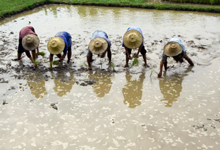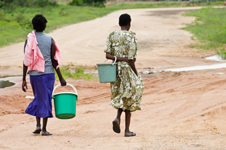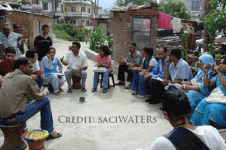
IGERT PhD: Preparing the Next Generation of Water Scholars
The Water Diplomacy Graduate Program at Tufts University educated doctoral students to become the next generation of teachers and scholars of water diplomacy. Supported by the Integrated Graduate Education and Research Traineeship (IGERT) of the National Science Foundation, this degree taught interdisciplinary water professionals to think across boundaries, integrate explicit and tacit knowledge, and link knowledge and action from multiple perspectives to help resolve water issues through mutual-gains negotiations.
WDW: Building the Capacity of Reflective Water Professionals
The Water Diplomacy Workshop (WDW) was an annual “train-the-trainer” event from 2011 - 2017 that built the capacity of senior water managers. Through highly interactive presentations and exercises, this workshop helped participants master important water network management tools, and gain the skills needed to teach these tools to others.
RCN: Bringing Together Research and Practitioner Communities
The Research Coordination Network (RCN) is a group of researchers and practitioners who will synthesize theory and practice to address complex water problems where natural, societal, and political elements cross multiple boundaries. Supported by the National Science Foundation, this global Water Diplomacy RCN explores ways to incorporate recent developments in complexity theory and negotiations, as well as advances in social networking technology, to generate actionable knowledge for adaptive water management.
Aquapedia: Gathering and Sharing Case Studies About Water
Aquapedia is a freely accessible, managed wiki that gathers case studies of water management and water conflict. It was actively developed through 2017. This experimental approach to open-source transboundary water knowledge was created to provide reliable, relevant, and readily available water information and wisdom from users and producers of explicit and tacit water knowledge. The potentially transformative and collaborative power of AquaPedia will help make water a flexible and expandable resource.



